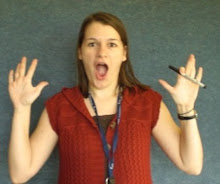The distinction between doing things differently and doing different things with technology was never clear in my mind before taking the course, Understanding the Impact of Technology on Education, Work, and Society at Walden University. In fact I did not even understand that there was a difference! Dr. Chris Dede illustrated the concepts beautifully with the story of how a fire provides benefit to all who stand close (Laureate Education, Inc., 2007). Technology unfortunately does not radiate knowledge like a fire radiates heat to all nearby. Technology, as a learning tool in the classroom, requires an instructor who is willing to do different things in order to benefit his/her students.
The first step I had to take in order to treat technology as more than an expensive fireplace was to become a user of different types of Web 2.0 technology. As Will Richardson recommends, I had to “make these connections in [my] own practice first so [I could] thoroughly understand the pedagogical implications for the classroom” (2006, p. 8). This course provided structure and support for me to include blogs, rss feeds, social bookmarking, and wikis into my personal practice, so I could experience for myself the profound power of these technologies to impact life. I have now gained confidence in my ability to navigate those technologies and can better envision their successful use in the classroom. In fact I have already begun to use a wiki with my students and have received positive feedback from students and parents. I would never have had the confidence to add this collaborative tool to my instruction without the practice I had creating my own in week 3 of this course.
To maintain and build on the momentum I have achieved in this course I must first continue to use Web 2.0 in my personal life. Secondly, I must remain dedicated to learning as much as I can about technology in the classroom and then using that knowledge to impact my classroom practice. As a life-long learner I will continue to push myself in areas that might be unfamiliar and uncomfortable but which will ultimately benefit my students.
To focus this momentum, two goals I would like to achieve professionally in the area of technology are to stay committed to and expand the wiki I just started into a student-built supplemental textbook. For this I will need to block out time each week to let my students explore areas of historical interest to them. These areas can then become the basis for the wiki. While at first glance this might seem to be taking time away from my curriculum, it is actually meeting state goals of helping students become historical thinkers. Secondly, I will become a leader within my building for the infusion of technology. One of the Educational Technology Standards for Teachers is that they become leaders and models to others (International Society of Technology in Education, 2008). In order to achieve this I will become a vocal member of our building technology committee, build a better relationship with our district technology department, and encourage other teachers to observe technology infused lessons I create. These steps will require changing how I operate as a classroom teacher and a faculty member but will pay big dividends to the future of our students. As Sheryl Nussbaum-Beach writes, “the time is ripe to begin instituting true change” in our schools (2008). Through this course I have been given the tools and confidence to be an agent of that change.
References
Laureate Education, Inc. (Producer). (2007). “Evolution of Technology and Pedagogy.” [Motion picture]. Understanding the Impact of Technology on Education, Work, and Society. Baltimore : Author.
International Society of Technology in Education. (2008). NETS for Teachers. Retrieved April 12, 2010, from http://www.iste.org/Content/NavigationMenu/
NETS/ForTeachers/2008Standards /NETS_for_Teachers_2008.htm
Nussbaum-Beach, S. (2008). No limits. Technology & Learning, 28(7), 14–18. Retrieved April 5, 2010, from http://www.techlearning.com/article/8466
Richardson, W. (2006). Blogs, wiks, podcasts, and other powerful web tools for classrooms (2nd ed.). Thousand Oaks, CA: Corwin Press.
Please follow me to my new website.....
10 years ago
